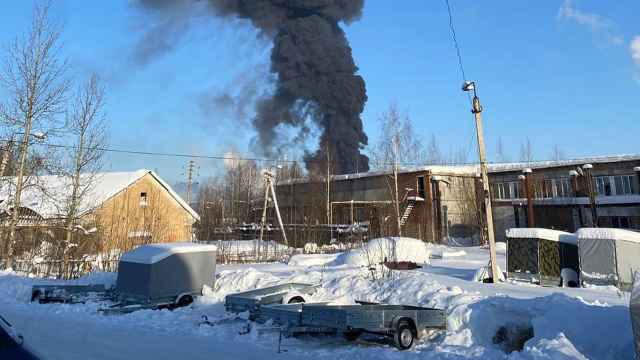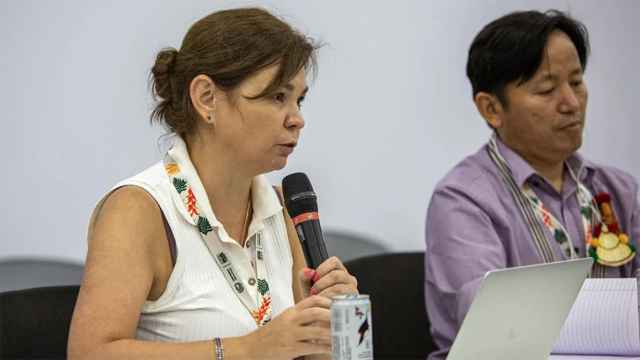When riding the metro or walking the streets in Moscow, one sees a variety of faces: stern and harsh, young and cocky, elegant and beautiful, stoic and resigned. Most are masks that cover a vast array of emotions. This reality becomes apparent during our Level I class concerning the treatment of trauma, abuse, neglect and addictions.
The first homework assignment is called a Trauma Egg. During this project, the participants list all the painful events and long-term stressors in their lives from birth through the present time. They also list the emotions they felt — or should have been able to feel — when these traumas occurred. Then they share which emotions were the most prevalent throughout their lives.
More than 2,000 people in the former Soviet Union have participated in this difficult work, and fear is the emotion most often listed as No. 1 by both women and men. I have students from 35 countries, and Russia is the only one in which fear is consistently at the top of the list.
Fear results from many different situations, including family violence, being left alone for long periods of time, severe illness, death of loved ones, being bullied, being a victim of sexual or physical abuse, or facing ruin by a serious natural disaster and other financial stressors.
These events are also listed by my students in the United States and many other countries. But, in Russia, fear also evolves out of specific events endemic to the former Soviet Union and to Russia today.
Many of my students recall that their parents lived in constant dread of a deadly knock on the door in the middle of the night, signaling that the KGB had come for their father, mother or grandparents. They usually also commented on the fact that a packed suitcase was kept behind the door in anticipation of this fearful event. For many families, the knock did come, and often the loved one who was carried away was never seen again. One student said the KGB never arrived but her father lived in such great fear of their presence that he died of a heart attack at the age of 40.
Another source of fear that affected every family resulted from the Great Patriotic War. Every family suffered in one way or another. Some lost loved ones on the battlefields, while others suffered from lack of medical care and other basic goods, starvation and other maladies. Almost all my older students tell stories of the terror they felt when bombs were raining down on their homes and schools.
The stories of starvation are the most tragic. A young Russian friend recalled how her grandfather used to beg her to eat more when she was an adolescent. He would even get on his knees and plead with her because he was so afraid that she would starve to death like several of his children did. Even though starvation was not a present issue in their family, his fear became so great that he hung himself rather than watch any more of his beloved family members die. His enormous fear conquered his ability to live in reality.
The most constant source of fear that is recounted in our classes is from being physically, sexually, verbally and emotionally abused by alcoholic parents or grandparents. Because the alcoholism rate is so high in Russia, it exacerbates the frequency and intensity of abuse. Alcohol is like gasoline poured upon smoldering coals and thus the intense flames of violence erupt and the ensuing rage envelops innocent victims — often children.
While alcohol remains the main instigator of domestic violence, it also is the primary agitator for many other types of aggression and brutality: rape, fighting, homicide and suicide. The World Health Organization states that about 75 percent of Russians arrested for homicide have consumed alcohol shortly before the incident.
Then there also are stories from my classes of present-day tragedies — and of triumphs over fear.
She was a beautiful young woman, age 23. Her drawing was a huge mass of darkness — the intense lines swirled and stormed over the entire page. But a golden crown rested at the pinnacle of the mountain of blackness, so incongruous to the gloom upon which it sat.
She said: "This is my fear. It is the king of my life. I don't ever remember not being afraid. My mother became very ill when I was small and was unable to care for me. My father worked all the time and often did not come home at night. I was responsible for caring for my sick mother and was terrified she would die when I was alone with her.
"We lived in a communal building that was like a barrack. There were many criminals there, and I happened to be the only young girl in our complex. These guys delighted in tormenting me daily and often were physically abusive. This escalated to sexual abuse as I became older. There was no one to protect me. My father was gone, and my mother was confined to a bed. She died when I was 14, and from that time on I was on my own most of the time.
"If you look at my Trauma Egg, you will see that I have listed many major traumas and abusive events in my life. It seemed as though fear became part of my skin. Two years ago, I was walking home and was hit by a drunk driver. He did not even stop and left me bleeding in the street. I had many injuries and needed blood transfusions, but the hospital was not careful about the blood they gave me. I was in the hospital a long time, and when I finally went home I still was not well. In fact, I became even worse and finally found out that I had been given tainted blood.
"I now have AIDS. I was told there is very little medication for this fatal disease here in Russia, and it is very expensive. They said this treatment probably is impossible for me. So I am here in this class to decide whether I will allow fear to continue to control me and be the king of my life or whether I will exchange fear for joy and allow myself to truly embrace that joy for the moments I have remaining.
"I believe I will choose joy."
A Message from The Moscow Times:
Dear readers,
We are facing unprecedented challenges. Russia's Prosecutor General's Office has designated The Moscow Times as an "undesirable" organization, criminalizing our work and putting our staff at risk of prosecution. This follows our earlier unjust labeling as a "foreign agent."
These actions are direct attempts to silence independent journalism in Russia. The authorities claim our work "discredits the decisions of the Russian leadership." We see things differently: we strive to provide accurate, unbiased reporting on Russia.
We, the journalists of The Moscow Times, refuse to be silenced. But to continue our work, we need your help.
Your support, no matter how small, makes a world of difference. If you can, please support us monthly starting from just $2. It's quick to set up, and every contribution makes a significant impact.
By supporting The Moscow Times, you're defending open, independent journalism in the face of repression. Thank you for standing with us.
Remind me later.





